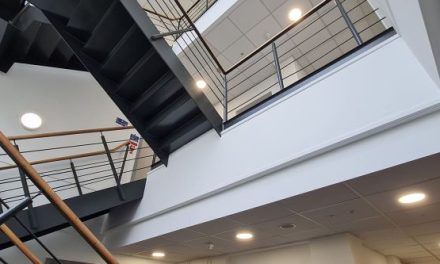We are living in a world where climate change is continuing to be a prominent talking point on a global scale. And as air pollution continues to have a devastating impact on the environment, we must make changes now in order to save our planet.
Countries such as Iceland aim to be carbon neutral eight years ahead of their government’s targets. With Copenhagen also setting an example, what does the UK need to do in order to keep up and make positive changes to our planet?
Under the Paris Agreement, Iceland is on track to achieve carbon neutrality before 2040 and will be cutting all greenhouse gas emissions by 40% by the year 2030. Since 2011, Iceland has reduced its operational carbon footprint by 74%, and is now well on its way to reach its goals.
What can the UK learn from Iceland in the race to become carbon neutral?
Keith Bastian, CEO of renewable energy supplier Outfox the Market and electric home-heating solutions provider Fischer Future Heat, explains a few lessons that the UK can learn from our Scandinavian counterparts.
Iceland and Copenhagen are in unique situations when it comes to sustainable energy and carbon neutrality. Utilising the likes of geothermal energy, the transition and efforts from both countries is outstanding.
Whilst the UK is set to reach its net zero target by 2050, we aim to reduce our greenhouse gas emissions by 68% by the end of the decade – a huge positive when compared to our levels in 1990.
As somebody working within the energy sector, I understand the difficulties of making changes on a national scale. We should be learning from those leading the way and working together to lessen our carbon footprints.
Small steps towards a greener and greater future
Climate change may seem overwhelming, and it is. However, it is important for everyone to remember that becoming carbon neutral is not something that happens overnight.
In fact, it happens with the smallest of steps, which later turn into something even greater, thus leading to positive and significant changes that will potentially impact the world, country or city, at the very least.
Not only will small steps positively contribute to the environment, but over time, it could benefit people’s pockets. The energy saving trust estimates there could be savings of up to £230 p/y through the installation of solar panels. The USA are also looking at aggressive pushes to 100% renewable energy.
Is it just Iceland?
Whilst Iceland is in the spotlight right now, it is not just the ‘Land of Fire and Ice’ that is well on its way to carbon neutrality.
The Danish capital, Copenhagen, is setting the green standard for cities and countries around the world and is on track to become the world’s first carbon-neutral city by 2025. As well as this, they made the commitment five years before global leaders signed the Paris Agreement.
Having implemented a waste-to-energy power plant, a smart energy lighthouse project and a water-based infrastructure, Copenhagen appears to be more than just one step ahead of everyone else.
Whilst we are somewhat behind the likes of Iceland and Copenhagen, they have set a fine example for us to follow. We know what needs to be done and how it needs to be done thanks to the innovation of others. By applying these innovations, we can now strive towards a carbon neutral future.
Lessons the UK can learn from:
- Transition from fossil fuels such as coal and oil, to renewable sources including air, wind, solar etc.
- Repurpose wasted energy.
- Demonstrate the benefits of carbon neutrality to consumers.
- Implement technology.
Achieving more than carbon neutrality
Iceland has a slight advantage as its location provides extensive access to a plethora of renewable resources. Being situated on top of an active volcanic zone that powers its geothermal systems, Iceland’s glaciers cover 11 per centof the country. This fact when combined with their incredible wind power potential means that Iceland’s only use of fossil fuel is for transport.
There are several things that we can learn from our Icelandic friends despite the UK not having the same access to such renewable resources.
As with Iceland, one of the first things to consider is transitioning from fossil fuels to renewables in order to heat our homes.
Carbon as a resource is extremely valuable. Climeworks has developed Direct Air Capture (DAC) devices that extract carbon dioxide from the air, and the firm is currently building its 15th plant in Iceland.
Technology such as this is playing a large part in reducing atmospheric carbon and is helping to prevent climate change by achieving negative emissions.
Why should we limit ourselves to just decarbonise the planet, when we could help to de-fossilise it too?
Many ask what lies beyond carbon neutrality. The answer to that is carbon negativity. Currently, Bhutan is the only carbon negative country in the world, so whilst we continue to work towards a carbon neutral future, a further battle awaits. For now, let us learn from these countries and make the changes to deliver a brighter and greener future for all.




